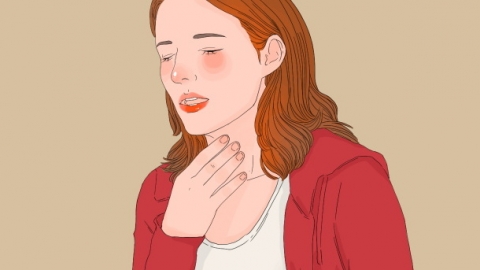What causes dry mouth and a bitter taste in the mouth?
Generally, dry and bitter mouth may be caused by factors such as insufficient water intake, excessive salt consumption, gingivitis, cholecystitis, diabetes, and other related conditions. It is recommended to seek timely medical consultation to determine the exact cause and receive appropriate treatment under a doctor's guidance. Detailed analysis is as follows:

1. Insufficient water intake: A low daily water intake may lead to reduced saliva production, causing dry mouth and decreased oral self-cleansing ability, which can result in a bitter taste. It is advisable to increase daily water consumption to maintain oral moisture, with an average of 1500-2000 milliliters of warm water per day generally being appropriate.
2. Excessive salt consumption: Consuming excessive high-salt foods can elevate the body's osmotic pressure, triggering thirst, and leading to a concentration of oral fluids, which may cause a bitter taste. Adjusting dietary habits by reducing salt intake and consuming more fresh fruits and vegetables can help alleviate oral discomfort.
3. Gingivitis: Often caused by plaque and tartar buildup, inflammation can lead to red, swollen, and bleeding gums. Bacterial proliferation may produce unpleasant odors, causing dry and bitter mouth. Patients may follow medical advice to use medications such as metronidazole tablets, amoxicillin capsules, and compound chlorhexidine mouthwash for treatment.
4. Cholecystitis: When the gallbladder becomes inflamed, bile excretion may become obstructed and flow backward into the mouth, causing bitterness. The inflammatory process may also affect digestive function, potentially accompanied by dry mouth. Patients should follow medical recommendations to use anti-inflammatory and bile-promoting medications such as cholagogue tablets, ursodeoxycholic acid capsules, and cefixime dispersible tablets for treatment.
5. Diabetes: When blood sugar levels are excessively high, the body excretes surplus glucose through urine, leading to fluid loss and dry mouth. Metabolic disturbances may also cause a bitter taste. Patients may follow medical instructions to use medications such as metformin hydrochloride tablets, glimepiride tablets, and insulin injections to control blood sugar levels.
In daily life, it is important to develop good oral hygiene habits, including brushing teeth in the morning and evening, rinsing the mouth after meals, and undergoing regular dental checkups. Additionally, maintaining a regular sleep schedule, avoiding late nights, and engaging in moderate exercise can promote metabolism and reduce occurrences of dry and bitter mouth.







